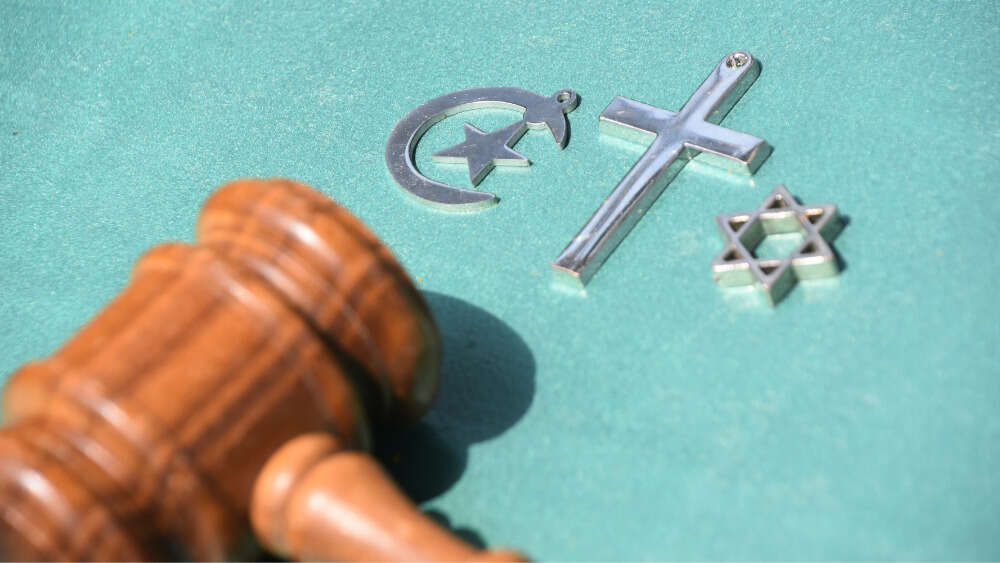Religious freedom remains only weakly protected by state laws – and in some states not at all – so Freedom For Faith (FFF), a campaigning think-tank, has announced a Religious Freedom Weekend from June 11-13. This will draw in many Christian denominations, including Pentecostals, Baptists, Seventh-day Adventists, Presbyterians, Anglicans, Catholics, as well as non-Christian faith groups.
“The federal government needs to continue listening to faith leaders and their communities, to ensure they understand what authentic religious protections look like, and then they need to act,” Rohan McHugh FFF’s Executive Director, tells Eternity.
“As the last two exposure drafts of the bill have been inadequate, the government needs to incorporate the feedback of faith leaders and produce a bill that genuinely protects religious freedom.
“The Prime Minister needs to keep his promise of introducing a bill in this term of government.”
The use of a Kirpan – the ceremonial dagger worn by people of the Sikh faith – by one 14-year-old student to stab a 16-year-old at a Sydney highschool, shows that religious freedom remains a hot topic in Australia, that can instantly hit the headlines.
“This episode demonstrates that there ought to be a clearer framework for protection of religious freedom in NSW, which currently fails to include people of faith in its anti-discrimination provisions,” says McHugh.
“As the government conducts a review into this matter, religious freedom needs to be a primary consideration given Australia’s multi-cultural, multi-faith landscape. The government should employ the least restrictive means of intruding upon religious freedom, responding in a proportionate way to 30 years of harmless Kirpan possession by Sikh students.”
People are seeing more and more restrictions on their liberty to live out their faith in the workplace, in educational settings and in other contexts.
FFF’s response indicates that Christian campaigning for religious freedom is not simply seeking privilege for ourselves but extends to seeking a welcoming attitude to people of all faiths and none.
Associate Professor in Law, Neil Foster, has provided an analysis that shows that the right of Sikhs to wear their Kirpans is built into NSW law. He points out that “genuine religious purposes” is provided in the Crimes Act as an accepted reason to have a knife in a public place.
Religious freedom is in danger of being eroded, according to Professor Patrick Parkinson, Chair of FFF.
“Core elements of that freedom, such as the right of faith-based schools and organisations to have staffing policies consistent with their religious ethos, are increasingly being called into question. Discrimination against people of faith is increasing, and people are seeing more and more restrictions on their liberty to live out their faith in the workplace, in educational settings and in other contexts,” Parkinson says.
Eternity asked FFF what Christians should be doing to protect this freedom.
“In addition to praying for our leaders and for religious freedom in Australia, Christians can contact their federal member and senators, explaining why this issue is so important to them and asking the MP or Senator what they are doing to protect religious freedom,” was the response.
“Only when we raise our collective voice and communicate our concerns will politicians understand why this issue is important, not only for Christians, but for a free and just society for everyone.”
The Religious Freedom Weekend website contains four suggests questions to raise with MPs and senators.
1. Do you support the introduction of a Religious Discrimination Bill?
2. Do you support religious people and institutions to be protected from discrimination on the basis of their beliefs or activities?
3. Do you support the right of faith-based institutions and communities to retain their identity and values through shaping their membership, leadership and staffing according to their beliefs?
4. Do you support, without government interference, the right of religious people to decide how they pray, who they pray for, and what they pray for?
Email This Story
Why not send this to a friend?



